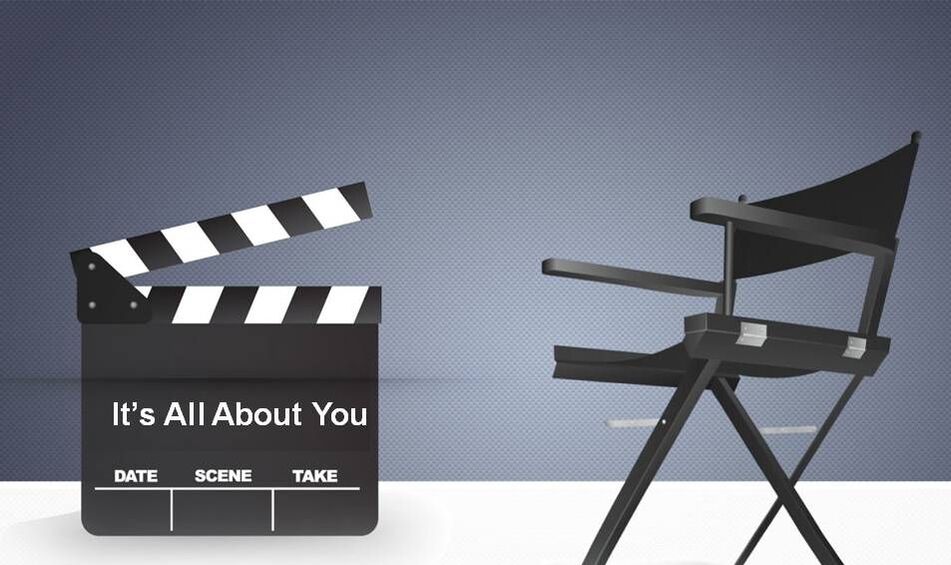|
Episode 152 - Making Movies
The Thursday Thesis – 23/5/2019 Remember the last time you went to the cinema? If the film maker did their job properly you were probably unaware of the exact moment when the real world fell away and you began to completely inhabit the world of the film. That’s because a good movie is an excellent induction into trance – the removal of critical faculty and the establishment of selective thinking. In a film-induced trance we can change rapidly, taking on the attributes of characters on screen. Ever watch an action movie and find yourself just a little more “alpha” then normal, swaggering just a tiny-bit more than usual? Or that rom-com you got dragged into by your better half: how did you think, feel and act when that movie ended? All day, every day, we have our very own mental movies running in the multiplexes of our minds. And what picture palaces our minds are! These are no common-or-garden movie theatres – our minds are 24/7 total immersion experience providers. Our sound systems are beyond Dolby THX, Surround Sound 5.1, exceeding even the best sound systems on the planet; visuals are projected all around us, 360 degrees in all directions, beyond 3D, HD, Imax, and 4K. Yet it is common for people to show only B-movies in their mental multiplex, replaying the memories of something they wish they could forget, or playing the future film of what they don’t want to happen, over and over again. Pain and Worry, now showing at a cinema near you. Repeatedly looping that tired old memory until you can remember every word, every nuance of movement, isn’t going to help you very much. Likewise, re-running the dystopian future fiction of worry is a powerful strategy for rehearsing disaster as we learn how to move, what to say and how to feel when everything goes terribly wrong. Now suppose you recognise that it’s your mental multiplex: you not only decide what movies play there, but you also create those movies – how would that be? Think about it – from the germ of an idea to the final cut, everything is under your control. Ask yourself what would you like your movie to be about? Now take a little time – just a few minutes – every day to create that movie. Be the writer and director, the musical director, the wardrobe person. If you have your goals written down, these can become the plot-points in the screenplay: a friend of mine actually storyboards her mental movies using 5”x3” index cards on a giant pinboard: she’s very successful and happy, giving most of the credit to her storyboard. “I just step into character and the movie starts...” she says “...all I do is act out what we’ve rehearsed.” “We?” I asked. It turns out that she lets Meryl Streep stand-in for her during rehearsals, and when Meryl’s got it nailed my friend takes over. So you should let an actor you admire take your place as the main character for the moment, because you don’t want just anybody messing-up the rehearsals do you? Hire the best actor you can think of to act your part: notice how they move, how they speak, and how much better than you they are when they’re in character. Of course, they’re a real pro and they never fluff their lines, fall over, stammer or corpse. Best of all, they’ll sometimes improvise something unexpected that’s even better than what you wrote. Keep seeing exactly what you want to be on screen from the director’s point of view, refining and editing, tweaking and improving it as you watch the playback at each test screening. Notice how the central character does things a little better with each take of the movie? When their performance is perfect, just drift into them and look out into the movie through their eyes as you pull on their hands just like a pair of gloves, fill-up their feet like you were putting on a pair of socks...feel how they feel as the movie unfolds and they perform brilliantly, in exactly the right way you want them to as they successfully take care of business, letting the boundary between them and you dissolve as you take on each of the attributes, characteristics and behaviours you need to allow the movie to continue, always free to make adjustments and improvements along the way, always sure of a happy ending. Best of all, there’s a sequel to your mental movie: it’s the story of what happened after the end of the first movie... Over time, it becomes an extended franchise and a blueprint for your life. Mental rehearsal is a proven strategy for sportsmen and women, and this is how elite athletes, politicians, performers and businesspeople practice when they are not “doing it” for real: they see themselves performing at the highest levels, flawlessly, over and over again; never falling or stumbling, just smooth, perfect performance of their script, movement, event, presentation or pitch. You own a great multiplex – a 24/7 Big Screen, Dolby Surround Sound, Multidimensional Dream Theatre... Why waste a venue like that by showing rubbish films? © Neil Cowmeadow 2019 Please Like and Share The Thursday Thesis with your friends, family, and your invisible friend. I’d love to hear your comments, along with any ideas you’d care to hurl at me. [email protected]
0 Comments
Leave a Reply. |
Share it with your friends
It's Like This...The Thursday Thesis shares ideas which I think are worth spreading. Archives
May 2022
Categories
All
All content on these pages is the intellectual property of the author, unless otherwise stated, and may not be used in any form or reproduced under any circumstances without the authors permission.
|

 RSS Feed
RSS Feed